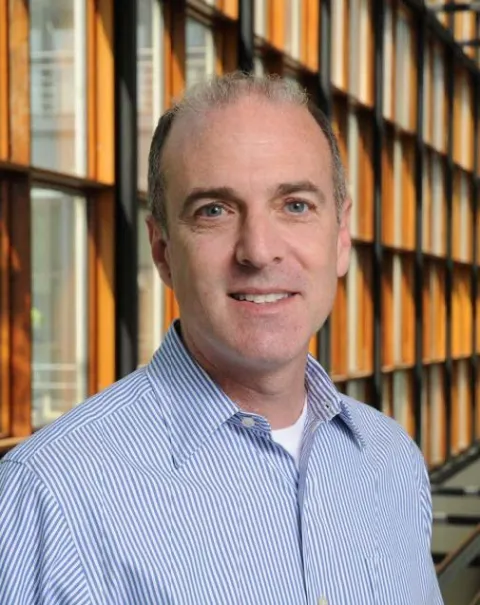Dr. Ed Blucher
Physics
Ed Blucher is Professor of Physics at the University of Chicago. He received his undergraduate degree in physics from Hamilton College in 1983 and his PhD in physics from Cornell University in 1988. He worked at CERN from 1988 to 1993, initially as a Scientific Associate, then as a CERN staff member. He joined the faculty of the University of Chicago in 1993 and served as chair of the Department of Physics from 2010 to 2016. Since 2022, he has been Director of the Enrico Fermi Institute.
Blucher has worked on a variety of topics in experimental particle physics. At Cornell, with the CLEO collaboration, he studied several aspects of B meson decay, such as B decays to charmed mesons and baryons, and B decays to charmonium. At CERN, as a member of the ALEPH collaboration, he focused on electroweak physics, performing precise measurements of the number of neutrino species and the Z lineshape. At Chicago, he worked on the measurement of direct CP violation with the KTeV experiment. He and his colleagues also used KTeV data to make a new determination of Vus, resolving a long-standing discrepancy in the unitarity of the first row of the CKM matrix. He served as co-spokesperson of the KTeV experiment starting in 1997. For the last 20 years, his research has focused on neutrinos, initially related to the measurement of θ13. After serving as co-spokesman of the Braidwood Collaboration, he joined the Double Chooz Collaboration in 2006 and the SNO+ Collaboration in 2012. He was a founding member of the DUNE collaboration and served as co-spokesperson of DUNE from 2017 to 2021.
Blucher is a fellow of the American Physical Society and the American Association for the Advancement of Science and has served on numerous advisory committees and panels. In the last several years, he was a member of HEPAP, was a member of the J-PARC PAC, and was chair of the Fermilab PAC. He has given summer school lectures on CP violation in the kaon system and on neutrino oscillation experiments.
